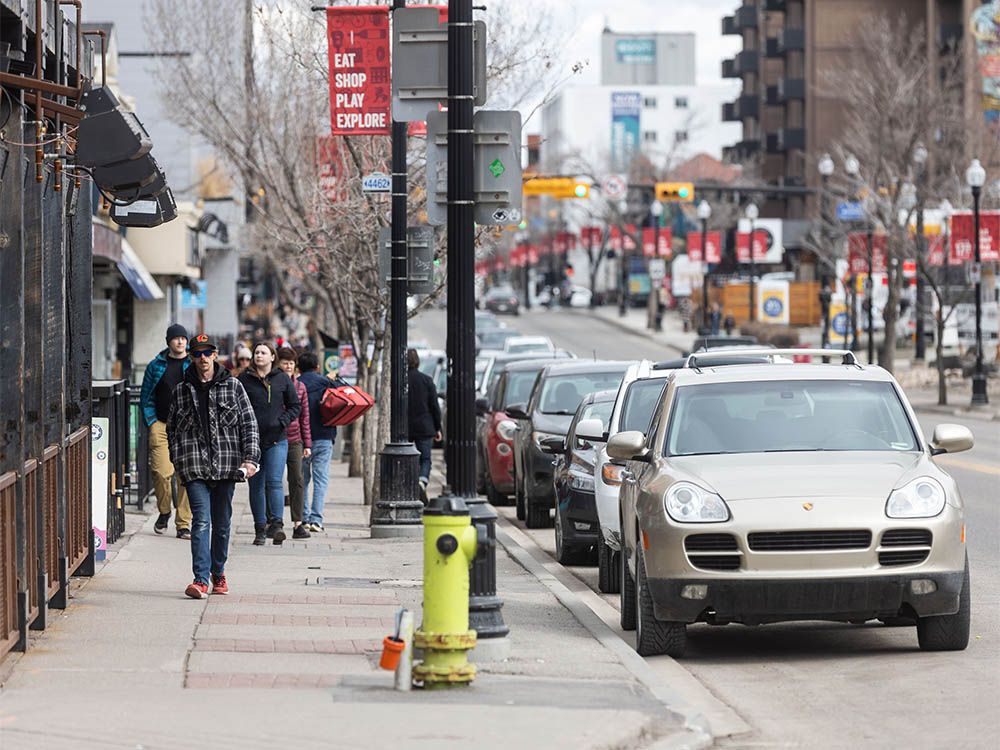Needs are tricky because it's all about
who defines what's needed - the status quo approach is needs are defined by a few business association members with media access and a poorly responded to survey, as well as some transportation engineers. Needs are defined as street parking and vehicle flow.
Sidewalk maintenance isn't really a "need" - therefore there's no issues if it takes a decade to complete simple sidewalk paving exercise. Similarly, it's not a "need" to be able to accommodate a few wheelchairs or strollers travelling side-by-side on the busiest sidewalk of the city, or the sidewalks would have been wider and all those utility box issues would have been moved long ago
when we ripped up the street.
We could just define our needs differently and end up with a different prioritization of space. I would argue in this specific context (17th Avenue, between 4th and 8th) there's a good case to do so over just any random road in any location given the high pedestrian volumes and substantial patio density. Again, it doesn't have to be a permanent car-free experience (although that would be cool), it can be any number of things.
Here's Elgin Street in central Ottawa, has main bus routes, traffic, and lots of retail/patios just like 17th Ave:
View attachment 555312
Here's it more recently - lots of cars, patios, buses still but a better space that does close occasionally for festivals and special events :
View attachment 555313





